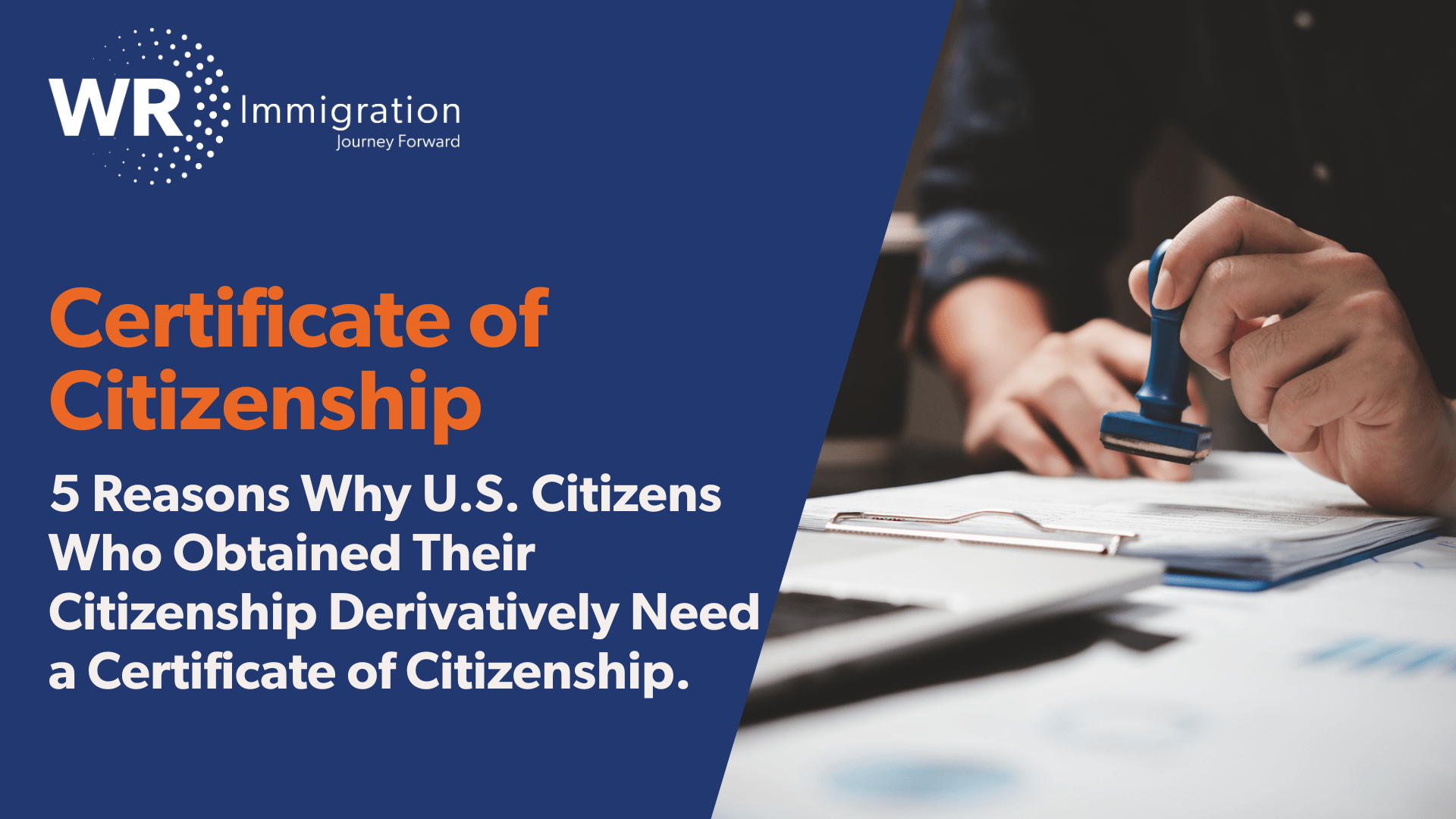Many U.S. citizens who obtained their U.S. citizenship derivatively through their parents often wonder why they are unable to prove the date they became US citizens. For U.S. citizens born in the U.S. or whose birth was registered abroad, they can use their birth certificates as evidence but for many others, the Certificate is highly recommended.
Here are the main reasons why it’s important to have a Certificate of Citizenship if you were not born in the U.S.:
- Legal Proof of Citizenship: A Certificate of Citizenship is official evidence that the U.S. government recognizes the individual as a U.S. citizen, which can be critical for obtaining a passport, Social Security benefits, or other services.
- Clarity and Protection: Derivative citizenship can sometimes be confusing, especially if it was acquired automatically through a parent. Applying for the Certificate formally recognize the citizenship status.
- Future Immigration and Legal Benefits: Having official documentation helps avoid complications later when applying for jobs, benefits, federal student aid, or sponsoring family members.
- Avoiding Mistaken Deportation or Denial of Rights: There have been cases where people were wrongfully detained or denied benefits because they lacked proof of citizenship.
- Permanent Record: Unlike a U.S. passport, which can expire or be lost, a Certificate of Citizenship is a permanent legal record of citizenship status.
WR Immigration is a full-service immigration law firm known worldwide for its unmatched excellence in providing top-quality U.S. immigration representation. To schedule a consultation to discuss your case, please contact us here.


